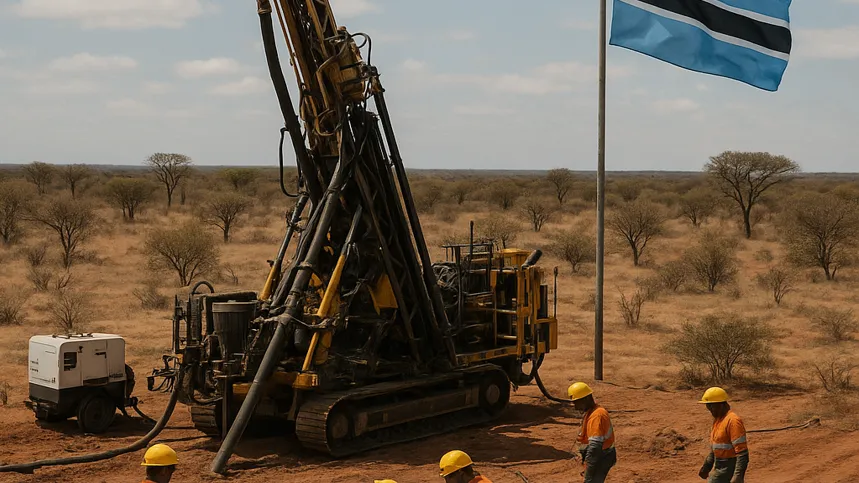Lotus Begins Infill Drilling at Letlhakane Uranium Project in Botswana

Lotus Resources launches infill drilling at Botswana’s Letlhakane Uranium Project to refine resources ahead of a 2026 Pre-Feasibility Study.
Lotus Resources has embarked on a new and strategic phase of development at its Letlhakane Uranium Project in Botswana, marking the commencement of an extensive infill drilling program. This initiative aims to enhance the confidence and classification of the project’s current Mineral Resource Estimate (MRE), which presently stands at 142.2 million tonnes (Mt) grading 363 parts per million (ppm) U₃O₈, equivalent to 113.7 million pounds (Mlb) of contained uranium. The results from this drilling campaign will be instrumental in supporting a forthcoming Pre-Feasibility Study (PFS) scheduled for completion in the second half of 2026. Together with the recently recommissioned Kayelekera Mine in Malawi, the Letlhakane development is central to Lotus Resources’ broader strategy of establishing itself as a leading and reliable uranium supplier in the global energy market.
The drilling program at Letlhakane comprises up to 12,000 metres of reverse circulation drilling and 1,500 metres of diamond core drilling, distributed across approximately 180 holes. Conducted in two distinct phases over roughly four months, this campaign will not only refine the geological model but also generate vital metallurgical samples for testwork. These samples will feed into trade-off studies designed to optimise processing efficiency and reduce costs. Among the key focus areas are the evaluation of a two-stage leach process aimed at reducing acid consumption while maximising uranium recovery, and the examination of a modified downstream process intended to eliminate solvent extraction, thereby improving impurity control and simplifying plant design. Additionally, various mining approaches are being assessed to determine the most economically viable and sustainable method for long-term operations.
Letlhakane’s resource potential positions it as a future cornerstone asset within Lotus’ portfolio, with the capability to sustain an annual production rate of approximately 3 million pounds of U₃O₈. This production scale would significantly bolster the company’s supply capacity when combined with Kayelekera’s output, reinforcing its position within a tightening uranium market. Managing Director Greg Bittar has underscored the complementary nature of the two projects, emphasising that their combined development underpins Lotus’ ambition to become a dependable, mid-tier producer of uranium oxide over the long term.
The timing of this development is particularly advantageous, as global uranium demand continues to strengthen in response to renewed interest in nuclear energy as a low-carbon power source. For Africa, the advancement of projects like Letlhakane not only signals increased foreign investment and technological transfer into Botswana’s mining sector but also contributes to regional diversification within the continent’s uranium production landscape. As Lotus Resources progresses toward the PFS stage, the success of its exploration and process optimisation efforts could have a meaningful impact on both Botswana’s mining economy and Africa’s broader participation in the global nuclear energy supply chain.
Mini-Glossary
- Infill Drilling: A type of drilling carried out between existing drill holes to improve the accuracy of a mineral resource estimate.
- Mineral Resource Estimate (MRE): An assessment of the quantity and quality of mineral resources within a deposit.
- U₃O₈: Uranium oxide, the common chemical form of uranium traded on the market.
- Reverse Circulation (RC) Drilling: A drilling method that returns rock samples to the surface using compressed air, suitable for rapid exploration.
- Diamond Drilling: A precise drilling method that retrieves intact core samples for detailed geological analysis.
- Pre-Feasibility Study (PFS): An intermediate study that evaluates the technical and economic viability of a mining project before detailed engineering.
- Two-Stage Leach Process: A metallurgical process where ore is treated in two sequential leaching steps to improve metal recovery.
- Solvent Extraction: A chemical process used to separate and purify metals from solution during mineral processing.
